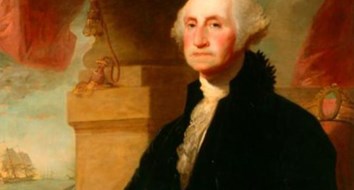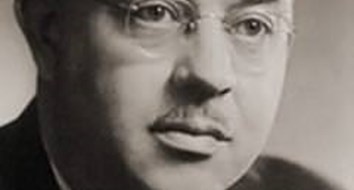There are few words one can use today that elicit a stronger response than discrimination. When someone accuses you of it today, it is a slap-in-your-face condemnation. And if anyone has ever heard of you, it can turn into a tweetstorm of abuse outing you for your alleged villainy.
The level of vituperation about discrimination today is striking to me as an economist because I know discrimination is inevitable. In a world of scarcity, individuals want more and better goods and services for those they care about than what they can produce. Therefore, each of us must choose which desires to satisfy and which to forego. Yet for you to choose is just another way of saying you discriminate. Something that is unavoidable does not justify moral condemnation.
The Human Capacity for Discrimination
That is especially true of libertarians, who believe every person has the inalienable right to life, liberty, and property. We believe individuals should be allowed to live their lives and make their own choices as they determine, so long as they do not violate others’ equal rights. Consequently, for the government to coercively extend their control of our choices and shrink our effective self-ownership, under the banner of eliminating discrimination, unjustifiably violates Americans’ liberty.
As in many things, there are insights from the past—before the discrimination allegation pot reached full boil—that can help us think through our rights and our power to choose more carefully. One of the most insightful comes from F.A. “Baldy” Harper in his 1951 “Blessings of Discrimination,” first published by the Foundation for Economic Education and reproduced in The Writings of F. A. Harper Volume 2: Shorter Essays.
"Capacity for discrimination…is not a tragedy; it is a blessing."
"Discrimination was said by Gautama Buddha to be the greatest essential human virtue…It is necessary to progress and to the advancement of civilization."
"Many of the leading problems of our day, I believe, stem from a thought-disease about discrimination. It…has come to be widely scorned. And politicians have teamed up with those who scorn it, to pass laws against it—as though morals can be manufactured by the pen of a legislator and the gun of a policeman."
"What is this thing, this discrimination, which has become so widely dubbed as an evil?"
"Discrimination is the exercise of choice…And the greater the knowledge and wisdom, the higher the degree of discrimination…Unusual powers of discrimination are the tools by which [one] may become a great scientist, or a creator in some other form…able to develop something notable only as he is capable of, and exercises, choice. He then becomes able to contribute to the advancement of human welfare."
"It is the power of discrimination which makes it possible…to exercise that blessed capacity for choice. Yet…because of some peculiar twist of 'modern thought,' [one] is confronted on every hand with the idea that discrimination is a sin. At its ultimate and logical conclusion, this concept flowers into governmental prohibition of choice, because government is the principal agent of force used to rob men of their right of choice."
"[There are] dangers inherent in the 'nondiscrimination' thinking of our time."
"Only one person can work at each job, which means that nobody else can have it at the same time…there must unavoidably be a selection of the person who is to work at any one job. There must be discrimination in this situation. The only remaining question is: Who shall have the right of decision? He must somehow choose the one for the job; he must somehow discriminate."
"The method used in a free and voluntary society is to allow agreement between the two persons concerned—the employer and the employee. No one else is rightfully concerned. If A wishes B rather than anyone else to work for him, and if B wants the job, there is a meeting of minds by choice and agreement of the only two persons who merit a vote in the matter. If it were to be said that C has a right to claim the job, it would mean that the right of decision, which properly belongs to A and to B, has now been confiscated by C."
"If there continues a denial to A and B of their rights in the matter, so that the question persists of who shall have the job, it becomes necessary to select an arbitrator…arbitration becomes the business of government…But the government has no basis for selecting the man who shall have that job, except as some bureaucrat renders the decision arbitrarily…Discrimination has not been eliminated…All that has happened has been the transfer of the rights of discrimination to a bureaucrat who has…no fundamental right of choice in the matter. He now becomes the discriminator, under a scheme supposedly designed…to eliminate discrimination."
"The claim is made, of course, that an employer is 'unfair' or 'discriminatory' if his choice is on some basis that is said to be unwise…for instance, that A hired B instead of C because he did not like C’s race or color or religion or something. But the basis for A’s considerations in his choice, or his motives, cannot possibly be known with certainty by any other person. How can any law like these 'fair employment practices' laws, then, be fairly administered? How can a judge render a wise decision on the basis of unknowns?"
"And in any event, what difference does it make how A arrived at his choice? One cannot question the basis for a choice without questioning the right of choice itself. There isn’t much sense to saying that I have the right, for instance, to select any kind of cheese I wish, but that I have no right to select one in preference to another…The right of choice is the right of choice, and the reasons therefore become a sacred part of the right of choice itself."
"This same analysis should apply also to B’s discriminating choice of the job offered by A. If there were no discrimination in employment—no rights of choice—here would be no means by which persons could find their best place to work; no means by which persons could develop and use their best talents; no means by which management could be good rather than bad; no means by which accomplishment and merit could find reward."
"The prevailing attitudes about discrimination in employment, or in friendships, or in anything else, are based on the assumption that discrimination leads to conflict, and that legislation against it is necessary to keep order and the peace. On the contrary, I believe that laws against discrimination generate rather than quell disputes and conflict."
"Note…the peaceful decision when A decides to hire B for a job, and B decides to take the offer. Compare it…with the situation that arises when all others who might want the job are made to believe that they have a right to that job. Nor does the chaos and conflict subside when a non-discrimination law is passed to give legal backing to all these impossible claims to rights—when a bureaucrat takes over and rations the job."
"This phobia about discrimination…has led to false claims of rights. Part of the…kit of communist tools is the idea that private property is the consequence of discrimination against those who do not own it. If non-owners can be made to believe this and to help pass laws to correct it, they will fight to have it corrected by 'fair ownership laws' whereby all private property is confiscated for the 'ownership of all.' This is the essence of communism itself, and it is already far advanced in the United States under devious and subtle devices."
"Wherever personal rights to discriminate and choose are violated…peaceful solutions to Nature’s law of limitations are replaced with chaos and conflict. When the attempt is made to widen rights and create claims in excess of what is available to fulfill these claims, conflict becomes inevitable and persistent."
"Conflict in all these areas can be curbed only by some device which will restrict rights or claims to any desired object, so that there is the necessary equality between the supply of a thing and the valid claims against it…The function of the 'device' of private property, in contrast to the impossible socialist-communist concept that everyone owns everything under 'ownership in common,' is to equate ownership with the property to be owned."
"The function of price in a free market, in contrast to a controlled price with rationing of an artificial shortage created by a government bureaucracy, is likewise to equate supply and demand for what is available."
"Judeo-Christian admonitions about the brotherhood of man and about loving one’s fellow men can hardly mean that man-made laws should be allowed to interfere with these methods of peaceful adjustment to human preferences and to the scarcities of desired things. Man should be allowed to continue his self-improvement on earth through the exercise of judgment and freedom of choice according to his conscience. When this concept of rights is combined with conduct according to the familiar guides of Judeo-Christian ethics…the destiny of man will best be fulfilled and…peace will reign at its maximum."
"If man is to continue his self-improvement, he must be free to exercise the powers of choice with which he has been endowed. When discrimination is not allowed according to one’s wisdom and conscience, both discrimination and conscience will atrophy in the same manner as an unused muscle…man…should use them and be personally responsible for the consequences of his choices. This means that he must be free to either enjoy or endure the consequences of each decision, because the lesson it teaches is the sole purpose of experience—the best of all teachers."
F.A. Harper recognized that the word discrimination can often short-circuit careful thought, creating knee-jerk condemnations. However, he also recognized that recognizing how our rights to life, liberty, and property are connected to our freedom to choose—provided we don’t violate others’ equal rights to choose for themselves—can restore rationality to the subject, and with it, far better results. As he concluded:
When one’s fellow men interpose force and compulsions between him and the Source of his being…it amounts to interrupting his self-improvement…Man must be left free to discriminate and to exercise his freedom of choice. This freedom is a virtue and not a vice. And freedom of choice sows the seeds of peace rather than of conflict.





